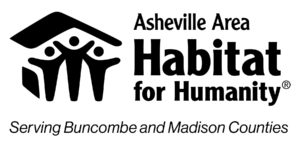By Andy Barnett, Executive Director
After a year of pandemic restrictions, we can’t wait to see more of you at our ReStores, on our job sites, and celebrating together with new home owners. We’re working hard on plans to ramp back up as public health restrictions ease. The Habitat staff are getting vaccinated as part of the current group, and I encourage you to get your vaccine as soon as you’re able. While we wait for our shots, I’ve been reflecting on how this experience provides a new way to think about the goal of building a community where all of our neighbors have a healthy and stable home.
At a 2019 fundraising event, I quoted Dr. Megan Sandal comparing housing to a vaccine.
“A healthy home is a vaccine that provides both immunity and resilience.”
Little did I know then how singularly focused we would become on vaccines. Yet, the comparison holds. For many of us, anticipating the COVID vaccine gives us a rare glimpse into the housing experience for our low-paid and fixed income neighbors.
Over the last year, I wondered if there would ever be a vaccine. When the first trials were announced, I wondered if the vaccine would be safe. After the vaccines were approved, I wondered if there would be enough vaccines to reach my community and me.
I added my name to multiple waiting lists hoping to improve my chances of securing a vaccine. I considered driving out of town, or even out of state, to find a vaccine. I was anxious and confused. Friends said that once they were vaccinated they felt relief from stress they didn’t know they carried. They felt like they could finally start moving forward with their lives.
Replace the word vaccine with home in the sentences above and this story sounds remarkably like the letters we receive from applicants to Habitat’s programs. Families who secure stable, affordable housing finally feel relief, a lightening of the burden they’ve carried for so long as they’ve been forced to make difficult decisions because there was little to nothing left after they spent as much as 50% of their income just to keep a roof above their heads.
Safe, affordable housing reduces health problems associated with poor quality housing; improves health for individuals with chronic illness or disabilities, including seniors; frees up family resources for nutritious food and healthcare; and reduces exposure to infectious diseases. Children who live in stable affordable housing do better on cognitive tests, exhibit fewer behavioral problems, experience better health outcomes, and have stronger social bonds than children who live in substandard housing conditions.
My hope– my prayer– is that the experience of loss that we have shared over this past year increases our ability to relate to the suffering of our neighbors and to act in ways that build homes, community, and hope.



